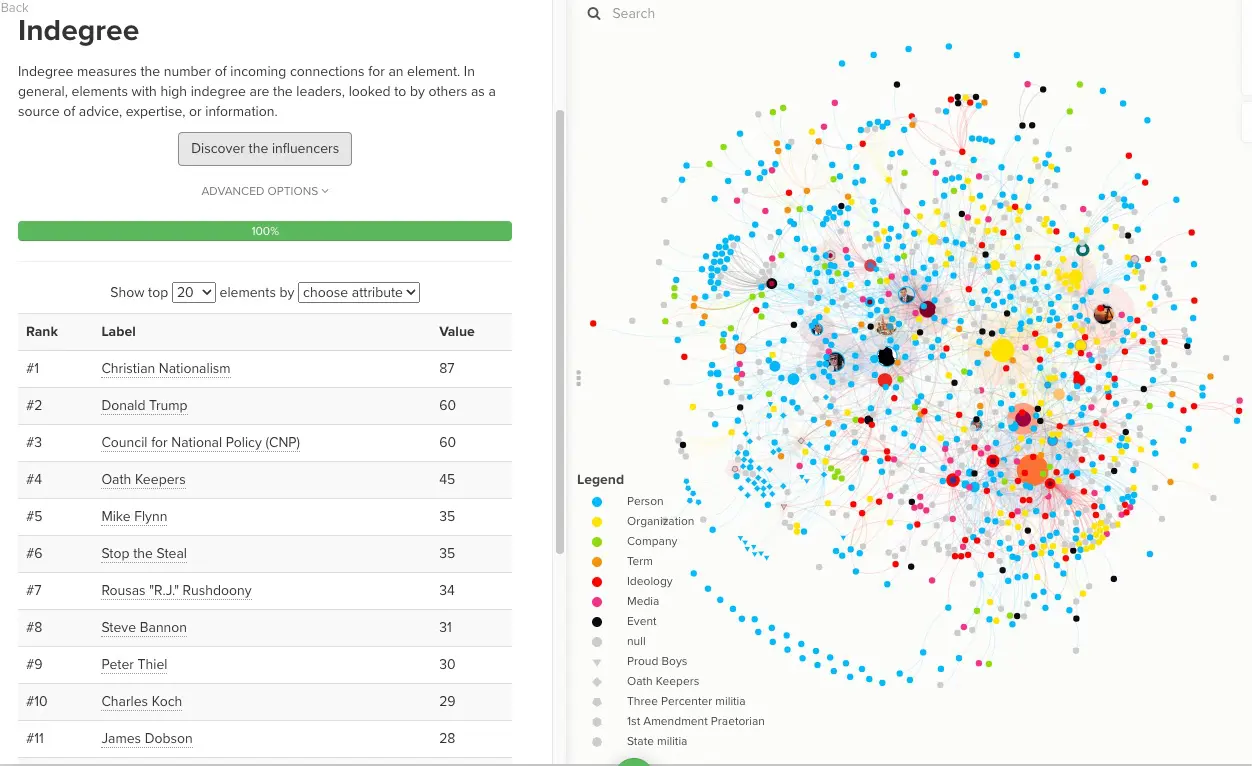It may have seemed like the election of 2016 came out nowhere, and the January 6, 2021 attempted coup event was another deep gash to the fabric of assumption — but in reality, the authoritarian movement to dismantle America has been working diligently for a long time. Depending on how you count, the current war against the government began in the 1970s after Roe v. Wade, or in the 1960s after the Civil Rights Act, or in the 1950s with the John Birch Society, or in the 1930s with the American fascists, or in the 1870s with the Redemption and Lost Cause Religion, or in the 1840s with the Southern Baptist split, or in the 1790s when we emerged from the Articles of Confederation.
We are facing an unprecedented crisis of democracy under attack by the most current roster of these extremists, hardliners, theocrats, plutocrats, and others of their ilk. The following mind map diagrams the suspects and perpetrators of the Jan 6 coup as we know so far — including the Council for National Policy, the Koch network, Trump and his merry band of organized criminals, the Oath Keepers, Proud Boys, and other right-wing groups — from militia convicted of seditious conspiracy, to rioters who have been arrested in the January 6th probe, to persons of interest who have been subpoena’d by the January 6 Committee in the House, to anyone and anything else connected to the ongoing plot to kill America whether near or far in relation. The map extends to include coverage of the basic factions at work in the confusing melodrama of American politics, and their historical precedents.
Mind map of the seditious conspiracy
I’ll be continuing to work on this as information comes out of the various investigations and inquiries into the attempted coup to prevent the peaceful transfer of power, from the January 6 Committee to Merrick’s DOJ, the GA district attorney, NY district attorney, various civil suits, and probably more we don’t even know about yet. You can navigate the full mind map as it grows here:
Head onward into “Continue Reading” to see the same mind map through a geographic perspective:
Continue reading Koup Klux Klan: The authoritarian movement trying to take over America





